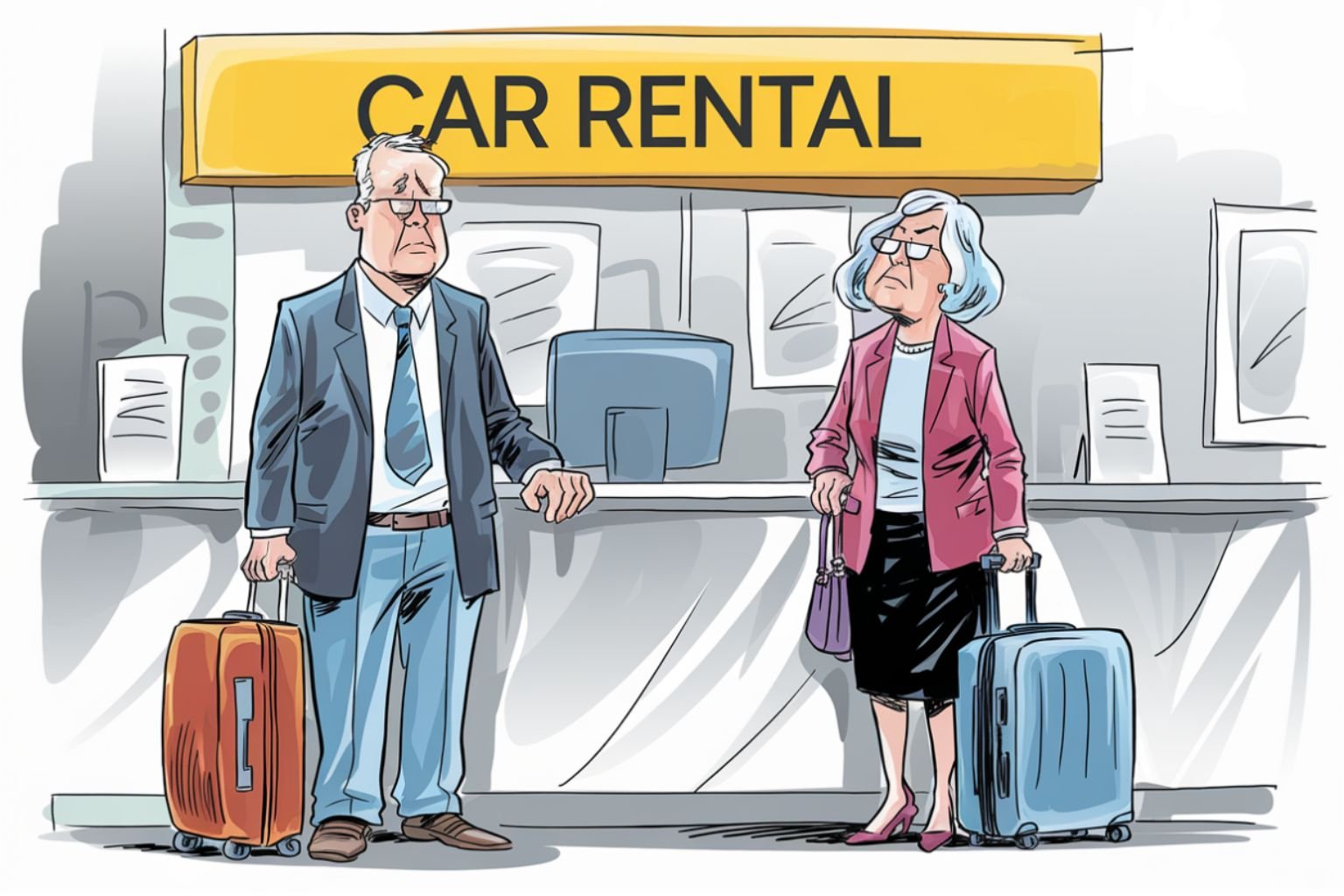The latest loyalty program changes have let down legions of frequent travelers. And now the government is preparing to regulate rewards credit cards.
Even if you’re not ready to quit your loyalty program, maybe you’re seriously thinking about it for the first time. I’m here to help.
Loyalty programs are just not worth it for most travelers.
Why you should quit your loyalty program now
Airlines, hotels and car rental companies have been devaluing your program by moving the goalposts for years. They’ve demanded more points for “free” seats and room nights — which are never really free because you paid for them with each purchase — and they’ve given you worse service.
Things started to fall apart a decade ago when airlines began calculating loyalty based on how much you spend rather than how much you travel.
Now they’ve crossed a line.
In a preview of things to come, Delta Air Lines further tightened its loyalty program rules, requiring SkyMiles members to spend more money to reach elite status and restricting lounge access. The changes rendered its loyalty program all but worthless to tens of thousands of customers. Delta later backtracked a little, but you don’t have to be a loyalty program expert to know where all this is headed.
There’s also this: U.S. credit card debt has soared bas $1 trillion. Some of that is a direct result of our obsessive efforts to generate more points through credit card spending. It’s a dangerous and unsustainable trend.
Bottom line: Now is the time to quit. And in just a moment, I’ll show you how to do it.
You don’t have to take it anymore
I’ve been following the decline of loyalty programs my entire career. This simple guide will help you discard your loyalty program once and for all and enjoy a points-free life.
I know you can do it because I have. Even though I’m on the road 365 days a year, I don’t actively collect points or miles for any of my travels. I travel better and I’m free to make the purchasing decisions I want instead of the ones my airline or credit card dictates.
This is how to quit your loyalty program
Before you get started, you should ask yourself if you belong in a program. For some frequent travelers, participating in a frequent flier or frequent stayer program makes sense. But not everyone should collect points, as I note in my ultimate guide to loyalty programs.
If you’ve gotten this far, you probably don’t need the points and you want to be liberated. Maybe a loyalty program has disappointed you. I know how that feels. Here’s how to unburden yourself:
Step 1: Burn your miles
If you’re like most loyalty program members, you probably have a few unredeemed points and miles in your account. You might not have enough for a “free” flight or hotel room. No worries. You can redeem your points for everything from gift cards to vacation packages through your travel company’s website. Make sure you run your points as close to zero as possible because once you’re inactive, your points will disappear and then you’ll be free. Or, if you want to do some good with your points, try the next option.
Step 2: Donate your points to charity
One of my favorite ways to clean out your points is to donate them to charity. Your airline has programs that let you give away your miles to worthy charities, from the American Red Cross to Habitat For Humanity. Who says something good can’t come from quitting your loyalty program?
Step 3: Cut up your card
The hardest part of quitting is cutting up that gold card you worked so hard to earn. I know it because I’ve been there. I actively participated in an airline loyalty program years ago when I was starting off as a travel journalist. Before I jettisoned my card, I thought of all the upgrades and lounge visits and special perks I was leaving behind. But I didn’t like being jerked around by the airline like a marionette — book this, buy that, go here! And like many readers of this site, I also felt that the airline was getting a better deal out of my slavish loyalty than I was. Enough was enough.
Step 4: Switch to a better credit card (or none at all)
Stop earning points, especially on your credit card. Points will always tempt you and try to sway you toward booking a flight you don’t need or a hotel room you don’t want. If there’s a nicotine patch for frequent travelers, it’s shifting to a cash-back credit card. Your bank will probably offer one with no annual fee. But be warned: Cash-back cards can also be habit-forming — after all, they promise “free” cash, which, of course, is nonsense. Your “free” cash is coming out of the price of your purchase. You’re better off with a simple debit card or, if you live outside the country, a payment system that bypasses the greedy credit cards entirely.
Here’s my story of getting hooked
As a cub reporter at a travel trade publication many years ago, I started collecting frequent flier miles. At first, it felt like a fair deal. I gave one airline my business and it rewarded me with “free” tickets — there’s that word again! — and upgrades.
Travel companies clearly benefited from this arrangement. Loyalty programs are enormously profitable. Airlines make billions of dollars a year from selling their miles to credit cards and customers, not to mention getting your unquestioning loyalty. (Related: No room for Taylor Swift fans: Radisson cancels points hotel booking!)
But customers didn’t seem to get as much out of the deal. Being loyal meant they obediently focused all of their travel dollars on one airline or hotel, even when it meant spending more or getting an inferior product. The terms were often absurd, too. Loyalty programs could change their rules whenever they wanted. Remarkably, the points you earn didn’t even belong to you; technically, they were the airline or hotel’s property.
But I couldn’t stop being loyal because I was addicted. Like a gambler playing slots, I believed eventually my luck would change, and I would win the loyalty game.
This is how I quit my loyalty program habit
After playing the loyalty game for a while, and after watching other travelers around me fumbling around and losing, the programs started to feel very unfair. I saw travelers making irrational decisions driven by their desire to earn more miles. These included making major purchases on a points-earning credit card, churning credit card balances to earn more points, and making mileage runs at the end of the year to gain elite status.
I tried to play by the rules. I earned miles by flying and I attempted to redeem them for “free” flights. But I could never find award tickets.
Honestly, I felt betrayed.
I’ll never forget the day that I decided enough was enough. I had reached mid-tier level with an airline. I was very proud of my status. But as I reviewed my spending, I realized that I had made several trips that I didn’t need to, just for the miles. I had spent too much money. But worse, I had also spent precious time away from my family and loved ones just so I could collect a few more points. I couldn’t even redeem the miles for the ticket I wanted. I felt like a sucker.
That’s when I threw my gold card into the trash.
Over the years, I’ve been tempted to try again. So what kept me away? Two things. First, I could see how frustrated my readers were getting with their programs and how they often wished they could be free. I also came to believe the only way to win the loyalty game was to cheat. An entirely new category of loyalty program fan blogs had emerged to teach readers how to do that through manufactured credit card spending, churning their credit card balances and engaging in other ethically questionable tricks. I wanted nothing to do with that.
The benefits of the loyalty-free lifestyle
For me, traveling as a minimalist feels lighter and I’m happier. I can book the flights and hotels that suit my itinerary and budget. I’m never thinking, “How many miles will I get from this?” And I’m in no danger of having to ask my own consumer advocacy team for help with a loyalty program problem because I don’t collect points.
Quitting your loyalty program will liberate you from the constraints of points and miles programs. By freeing yourself, you will also disrupt the travel industry’s profit model and reclaim your autonomy as a consumer. Embracing the loyalty-free lifestyle will change the way you travel for the better.
And if enough people join me, we might even bring back a little fairness and rationality to the system. Wouldn’t that be something?
About this story
The one-two punch of Delta’s loyalty program changes and credit card debt numbers compelled me to write this commentary. Also, I have grown weary of the emails from readers who ask for help solving a problem with a loyalty program when the obvious solution — the only solution, really — is to quit the program.
After this story appeared, I received a few questions about the effect of canceling your credit card on your credit score. It’s true that closing a credit card could lower the amount of overall credit you have, which could affect your credit score. So make sure you switch to a payment method that offers you access to credit to keep up your score.




